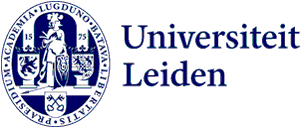
What is BAS and what can the department do for you?
A number of organisational changes have been implemented in the faculty office of the Faculty of Humanities. This has led to the creation of BAS: the department responsible for Policy, Advice and Strategy. Department heads Marcel Belderbos and Tim Lamers introduce themselves and the new department.
BAS was created from a split of the former administration and policy support departments. The new department advises the Faculty Board, institutes and programmes on policy in the field of education and research. This includes important topics such as social impact, interdisciplinary cooperation, internationalisation and diversity policy.
One department, two teams
'The department is made up of two teams: Educational Advice and Quality Assurance (O&K) and Research and Impact (O&I),' Belderbos explains. He is the O&I team leader. Our area is policy around research and its social impact; for example, a PhD policy, policy around data management or the policy-based use of the start-up and incentive grants. We also help researchers through our faculty knowledge broker and LeidenGlobal to engage in collaboration with non-academic parties.'
Lamers heads the Education Advice and Quality Assurance team. 'We focus on achieving the educational vision, developing new programmes and educational policy, and advising lecturers on educational policy,' he explains. 'We are also responsible for supervising mid-term reviews and educational assessments.' Here, educational innovation plays a major role, but attention is also paid to observing laws and regulations, such as by promoting the expertise of members of boards of examiners.
Short lines
Despite the defined tasks, the department does function as one unit, Belderbos and Lamers emphasise. 'Cooperation between the two teams is important. On the work floor, the researcher and the lecturer are often one and the same person, so there are lot of issues that you can’t look at from the teaching or research perspective alone. You have to take an integrated approach, which is why a conscious decision was made to bring the teams together in one department,' Belderbos explains.
By establishing support desks, the department heads hope to make the support available to researchers and lecturers clear. 'We want to let to the outside world know that there is one desk for questions about, for example, new teaching methods, social impact and data management, so that a lecturer does not first have to find out where exactly they need to be for that one question. Behind the scenes, we keep the lines of communication short so that the question quickly finds its way to the right place,' says Lamers. 'We also organise these desks beyond the borders of our department; we cooperate broadly within the faculty office.'
Further integration
In the coming period, the department will focus on further developing cooperation between the teams. To do this, they are also taking inspiration from other universities. 'We will shortly be visiting Ghent to see how they deal with themes that are not only limited to education and research, such as internationalisation,' says Belderbos. ‘Our aim is to work more closely with one another, so that we can make a maximum contribution to the progress of our faculty.'
